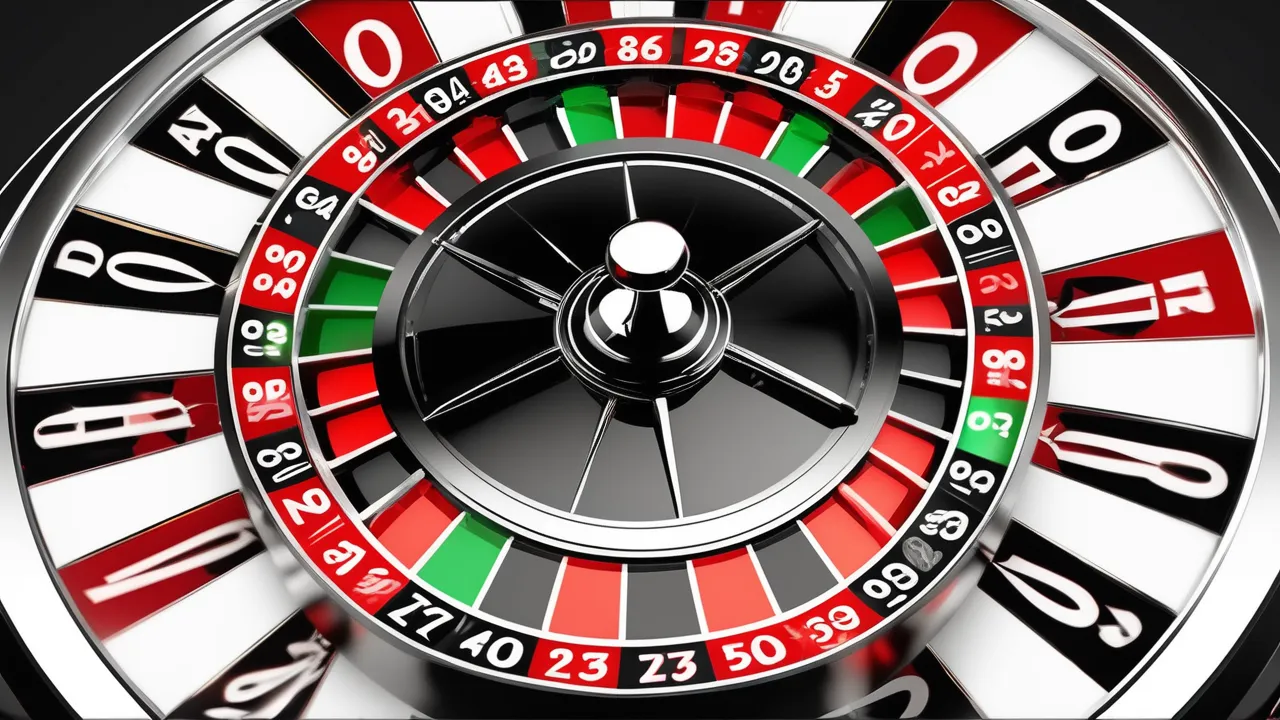Roulette is a chance-based casino game that has been played for centuries. It consists of a small ball and a spinning wheel with numbered slots. Participants bet on the ball's landing spot, and the winner is whoever predicts correctly. While the fundamentals of the game are simple to understand, there are a lot of betting options & strategies available to increase one's chances of winning. Since the foundation of roulette is luck and probability, it is impossible to pinpoint with absolute certainty where the ball will land. However, understanding the game's basics can help you make more informed betting decisions.
Essential Takeaways
- Grasping the fundamentals of roulette is key to mastering an effective system.Tapping into your inner gambler and understanding the psychology of gambling can help improve your roulette game.Investigating various roulette systems can lead to discovering the one that suits you best.A step-by-step approach is crucial to mastering the Martingale system for optimal wins.Proper bankroll management is vital for handling risk and uncertainty while maximizing your roulette profits.
There are two main types of roulette wheels: European and American. Unlike the American wheel with 38 slots and an extra 00, the European wheel has 37 slots, numbered 0 to 36. For serious bettors, the European wheel is the better option because it has marginally better winning odds. Embracing Risks and Impulsivity.
The idea of taking risks is a major psychological component that affects gambling behavior. The thrill of taking risks and the potential for big payouts draw many to gambling. This can lead to impulsive decision-making and irrational behavior, which can be detrimental when playing roulette.
Loss Aversion. Another important psychological aspect of gambling is loss aversion. People have a strong inclination to strongly prefer avoiding losses over making gains. This often leads players to place conservative bets to avoid losses, even if it means missing out on potential wins. Controlling Your Attitude.
You can acquire a better understanding of your own gambling-related motivations and behaviors by comprehending these psychological aspects. This understanding can guide you in adopting a more calculated approach to roulette, allowing for better decisions and avoidance of common pitfalls. Players can enhance their chances of winning by using different roulette systems and strategies. While some of these systems are predicated on mathematical ideas, others are based more on instinct and gut instinct. The Martingale method, which doubles your bet after each loss until you win, is a well-liked roulette strategy.
Even though this strategy has a lot of potential for success, it is very risky and demands a sizable bankroll. The Fibonacci system, another favored roulette approach, is derived from the Fibonacci number sequence. This system is considered less risky than the Visit this link Martingale, as it follows a predetermined sequence for placing bets. Other popular systems include the D'Alembert, Paroli, and Labouchere roulette strategies. Before applying any of these systems in a real-world gambling setting, it's critical to comprehend how they operate.
Every system comes with its own unique set of rules and strategies. The Martingale system, one of the most widely used roulette strategies, is based on doubling your bet after every loss until a win is achieved. Although this strategy carries a high degree of risk and needs a sizable bankroll, it may be useful in theory. To use the Martingale system successfully, it's essential to follow strict guidelines and have a deep understanding of how it works.
To use the Martingale system, start by placing a small bet on an even-money bet, such as red or black. If you win, maintain the same bet amount. For the subsequent spin, raise your wager by twice if you lose. Once you start winning, you should go back to your initial stake size.
If you lose, keep doubling your bet until you win. Setting a cap on how many times you double your bet is vital to prevent losing a large sum of money quickly. While there's no foolproof way to win at roulette, various tips and strategies can improve your chances of success.
One key piece of advice is to stick with even-money bets, such as red or black, odd or even, or high or low numbers. These bets, which offer the best winning odds, can help minimize your losses over time. Setting and adhering to a strict budget is a crucial tactic for optimizing your roulette winnings.
Setting financial limits before you begin is key, as it's easy to get swept up in the excitement of gambling and overspend. Taking breaks during a roulette session can help clear your mind and refocus your energy. This practice can lead to more calculated bets and fewer impulsive decisions.
Set a Budget. Managing your bankroll effectively is crucial for winning, particularly in roulette. It involves setting a budget for how much money you are willing to spend on gambling and sticking to it. The first rule is to never wager more than you can afford to lose. Set Clear Limits.
A key rule in bankroll management is to never wager more than you can afford to lose. This rule helps keep gambling stress-free and avoids potential financial difficulties. **Define Specific Limits.** By defining clear limits for each spin, you avoid overspending and keep track of your wins and losses. **Track Your Wins and Losses.** Keeping a record of your wins and losses ensures you know exactly where you stand in roulette. Don't hesitate to reach out if you need more help! For many people, roulette is an exciting game because it's naturally risky and unpredictable. It can be very thrilling to take chances and potentially win large sums of money, but it's crucial to approach gambling with a clear understanding of the possible consequences.

You can improve your chances of winning & still experience the excitement of this time-honored casino game by adhering to these rules & going into roulette with a clear knowledge of its benefits & risks.
FAQs
Understanding a Roulette System
A roulette system refers to a strategy or method that players use to gain an advantage over the casino in roulette. These systems often involve placing bets in a specific pattern or sequence in order to increase the chances of winning.

Do roulette systems guarantee winnings?
No, using a roulette system does not guarantee winnings. Roulette outcomes are completely random, and no system can change this fact. Although a roulette system might help manage bets and improve short-term winning odds, it doesn't guarantee long-term success.
What Types of Roulette Systems Exist?
Yes, there are various types of roulette systems, including progressive betting systems, non-progressive betting systems, and combination betting systems. Each type of system has its own set of rules and strategies for placing bets.
Is it legal to use a roulette system in a casino?
Yes, it is legal to use a roulette system in a casino. However, casinos may have their own rules and regulations regarding betting patterns and strategies, so it's important to familiarize yourself with the specific rules of the casino you are playing in.
Can a roulette system help minimize losses?
Some roulette systems aim to reduce losses by managing bets and bankroll more efficiently. However, it's crucial to remember that roulette is based on chance, and no system can entirely remove the risk of losing.